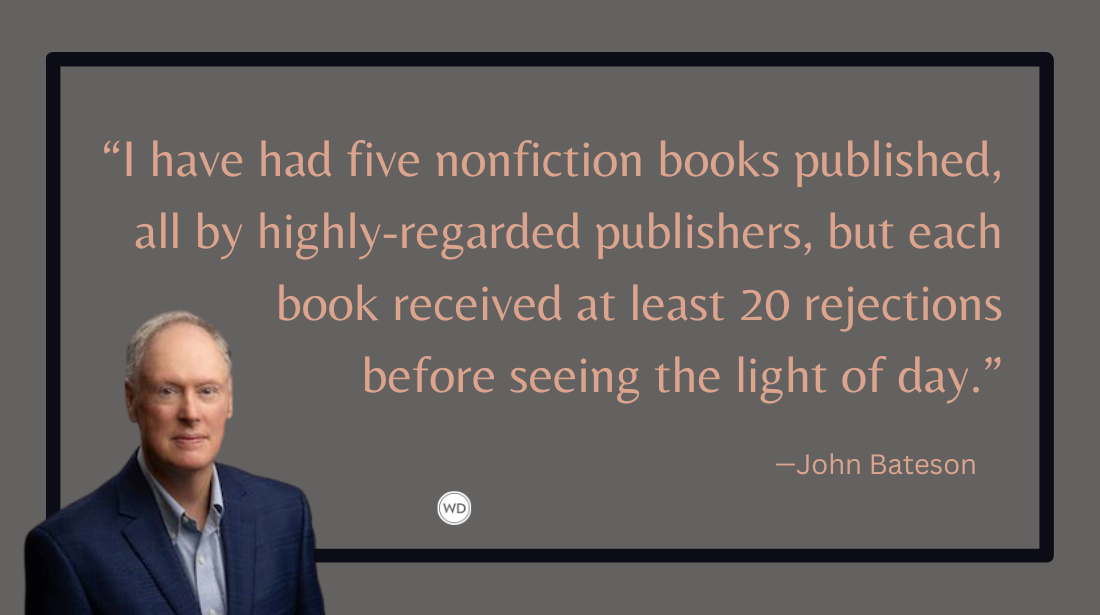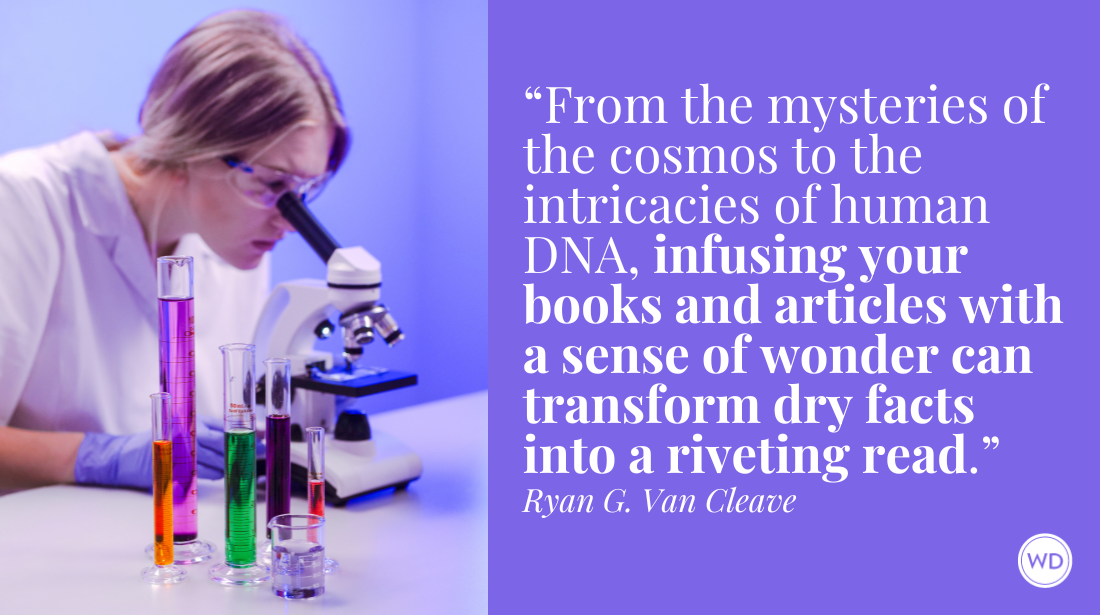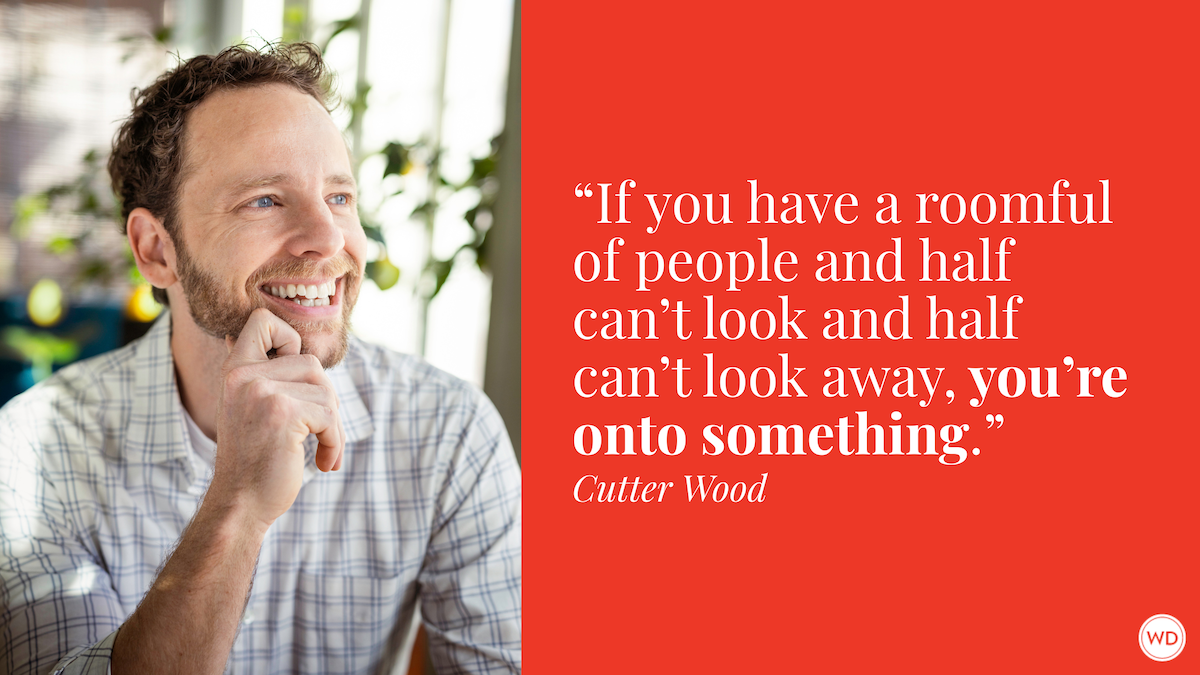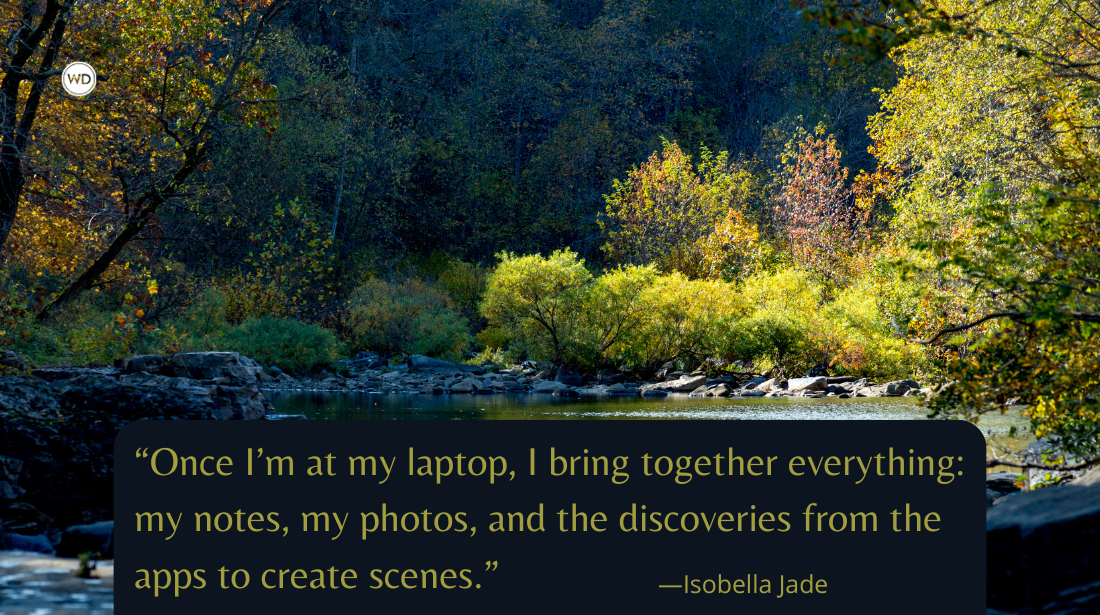A Tip for Nonfiction Writers on the Use of Quotes
There is a popular misconception among many nonfiction writers that leading off an article or story with a quote is a cliched technique. David Fryxell, however, disagrees.
"Should you ever start an article with a quote?" she asked.
"Of course," I replied. "But it has to be the right quote."
Since, unlike my example here, the nonfiction writer isn't really allowed to make up quotes to fit a story's needs, finding just the right quote with which to open an article can prove tougher than it sounds. Your lead, after all, is your most important magnet for attracting readers. As the saying goes, you never get a second chance to make a first impression—and that weights your choice of opening lines with a huge responsibility.
Relying on a quote to meet that challenge seems like such a natural choice. Good, juicy quotes can be among the most powerful and effective words in any story. They represent the pure, unfiltered essence of your subject. A quote can often make the ideal ending to an article, a punctuation that's more direct, less labored, than any closing you could otherwise craft. So if you likewise want to lead from strength, what better than to start with something in quotation marks?
Unfortunately, it's not that simple. Closing quotes work because they build off everything that's come before, creating either a climax or an ironic counterpoint. Readers know the character who's speaking, understand the context, and can appreciate the summarizing turn of phrase or final surprise.
But your lead must labor from a blank slate; an opening quote just hangs there, waiting for meaning and even for attribution.
So it's got to be good. A lead quotation has to accomplish all the tasks any other lead must do: attract reader interest, set up the story, start to focus your theme, lead readers into next paragraphs as you begin to explain why they should keep on reading. But because a lead quote is somebody talking—somebody the readers don't know yet—it has to somehow suggest who the speaker is and why readers should be interested in what she says.
The right opening quote, however, can use this bit of mystery (who's talking? what's going on?) to intrigue reader—making this approach a powerful way of doing the lead's most important job. You just have to satisfy readers' curiosity before they get frustrated and flip the page.
Jump Right In
On the most basic level, this means that if you lead with a quote you need to swiftly supply attribution. Beyond identifying the speaker, your lead should begin to sketch in the setting and situation, so readers aren't left wondering too long. These chores often require a delicate dance between quote and narration, switching back and forth even within your first paragraph:
Look how Jack McClintock opened with a quote, identified his speaker and setting, then jumped back to complete the quote, in this lead for an article in This Old House magazine:
"I feel like a little kid building a fort," says stonemason Josh Billig. He's crouching in a pool of Miami sunshine at the foot of a rambling old Mediterranean-Revival mansion's stone stairway, chipping away at a hunk of coral rock with a loosely held hatchet Occasionally, he glances out at Biscayne Bay, or up past the royal palms—he's a longtime bird-watcher—to observe an osprey wheeling against the blue sky or a flock of green parrots flying by. "I used to see old estates like this as a kid and think I'd have one someday."' He chuckles at his early naivet? fitting a stone into place. "But now I work in them every day and I probably spend more time on estates by working in them than if I lived in one."
Notice McClintock's economy of words: Almost immediately, we know who the speaker is, what he does, and where the story is set ("a pool of Miami sunshine"). But he accomplished this without flat expository sentences ("Josh Billig is a stonemason who works in Miami..."). Instead, he got the story immediately into gear with action ("crouching," "chipping," "glances," "wheeling," "flying," "chuckles," "fitting") and specific details ("Mediterranean-Revival," "stone stairway," "coral rock," "osprey" rather than simply "bird").
By the time he completed the quote, moreover, we've begun to learn something about Josh Billig and why we might be interested in reading more about him: This seems like no ordinary stonemason—he works on grand old estates, which presumably takes special skills, and he uses something called "coral rock," not just ordinary stones. By the middle of the next paragraph, McClintock spelled out this "hook" for his story more directly: "Probably fewer than a dozen people do what Billig does for a living: turning cream-and-carmel-colored 'coral rock' (which is actually a kind of limestone geologists call oolite) into artful, solid, lasting structures."
Okay, we're hooked. The charm of the "little kid building a fort" first line caught our attention, tapped into a universal childhood experience—and then McClintock rapidly, seamlessly turned "the right quote" into the right lead for his article.
Speaking Your Piece
But how do you know if you've got the right quote, one that can snare impatient, page-leafing readers? An ideal opening quote encapsulates some key aspect of your story. If your story is interesting enough (and if it's not, you should be writing something else!), leading with that essence of your subject should attract readers like blossoms attract bees.
Let's look at another example. In the go-go luxury real-estate market of the late 1980s, Wall Street Journal reporter Meg Cox set out to profile a Realtor to the rich and famous. That's an idea with innate appeal: It's got money, glamour, celebrity, a bit of voyeurism. To sell it to readers, Cox's lead just had to quickly communicate what her story was about. She found the answer in the words of her profile subject:
"This is a great, famous, '20s building," says Edward Lee Cave, escorting a fur-coated lady through a $5 million penthouse apartment in Manhattan's River House. "There used to be a private pier down there for parking yachts. That is Garbo's building, and over there is the apartment that I.M. Pei designed for William Zeckendorf. Of course, this tower looks down on all of them."
Right off the bat, you've got yachts, name-dropping and, best of all, a lovely zinger of superiority. ("Of course, this tower looks down on all of them.") The quote serves as almost a perfect precis of what's to come. Who could resist reading on?
Or suppose you're writing a story about comedians. What better way to open with the essence of your subject than to quote a joke? In another Wall Street Journal story, David J. Jefferson reported on how black comedians in Los Angeles were expressing their audiences' agony over the Rodney King verdict. So he began with a joke, of course—one that specifically spoke to his story's angle:
"Some friends called me up," says Air Samuels as he launches into his comedy act. "They say, 'Move to California where a man can live like a King.' So I did. But I didn't know they was talkin' about Rodney."
It's a grabber, it's amusing and, most important, it launches readers right into the heart of the story. Look at how much information that quote and its brief clause of attribution communicated: The subject is comedy, the setting is California, and what's on the comedian's mind is Rodney King.
Dare to Be Different
Flip through magazines whose writing you admire, study anthologies of the best in nonfiction, analyze Pulitzer Prize-winning newspapers: You'll be amazed at how seldom the stories therein begin with a quote. It seems like one of the most obvious, easy ways to begin an article—a high, hanging pitch begging to be knocked out of the park. But the challenges of using an opening quote and of finding the right quote scare away even the best writers.
Of course, this doesn't mean that you shouldn't try it. Indeed, the rarity of this technique gives it added power; the opening quote is far, far from a clich?. Just understand the rules, and comb your notebook for a quote that fits. You'll grab readers' (and editors') attention, and start your story off with a bang.
You can quote me on that.








